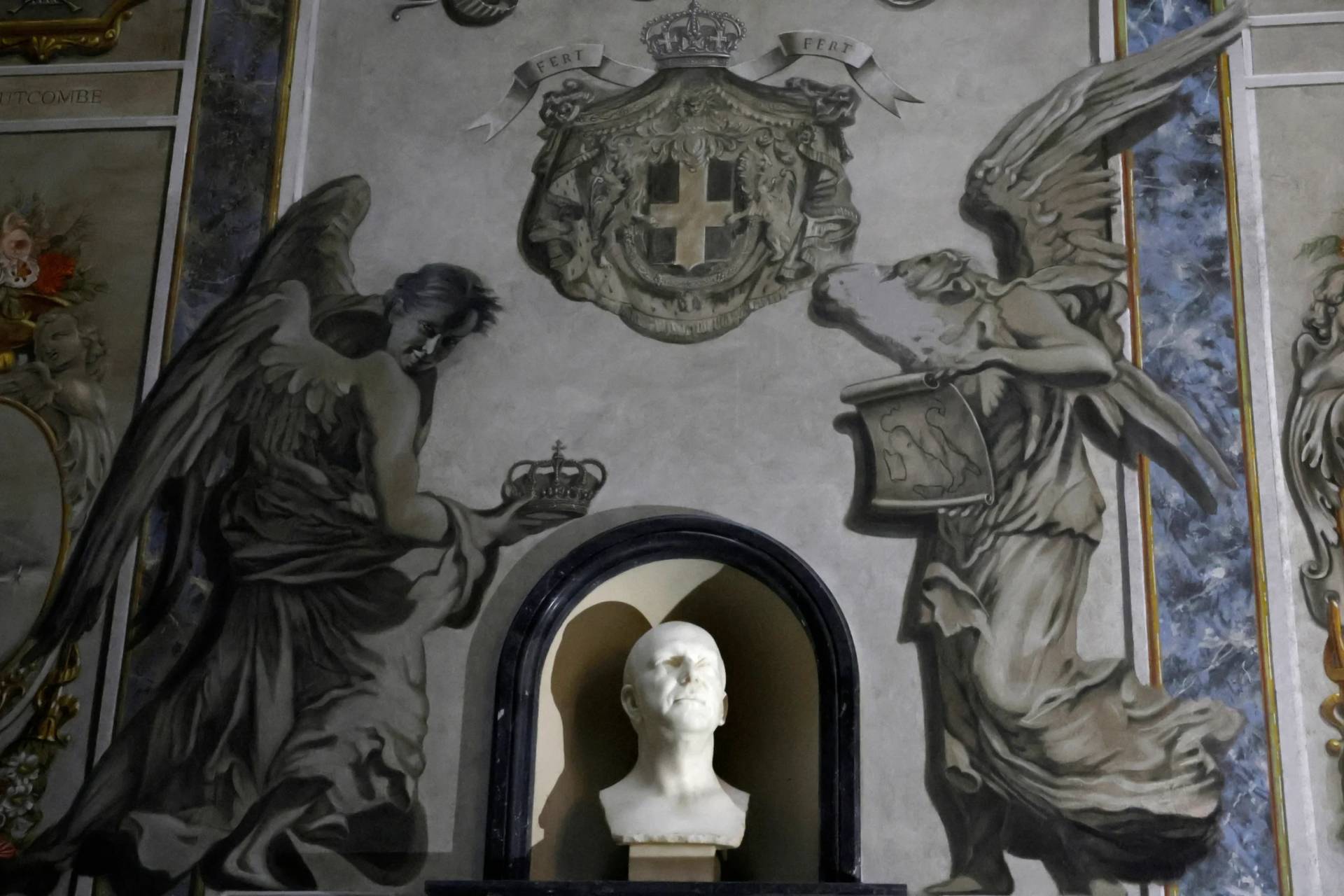ARLINGTON, Virginia — During a Mass livestreamed from the Cathedral of St. Thomas More in Arlington on Divine Mercy Sunday, Bishop Michael F. Burbidge spoke of the constant need to “ask for mercy, be merciful and trust in Jesus.”
In his homily April 19, Burbidge reflected on the connection between mercy and peace, and on Jesus’ words, “Peace be with you,” addressed to his disciples in his first appearance after his resurrection. Even though Thomas showed doubt and a lack of faith, he noted that Jesus did not say,”Shame on you, Thomas” — he said, “Shalom, peace be with you, Thomas.”
“Like Thomas, there are times we are filled with doubt and unbelief, especially in the midst of trials, perhaps like the ones we are experiencing in these unsettling days,” Burbidge said. “And it’s precisely in those moments that the Lord is standing in our midst, longing to forgive us, to heal us and to allow us to begin anew.”
This year marked the 20th anniversary of St. John Paul II’s declaration that the Sunday after Easter would be celebrated as Divine Mercy Sunday. The Divine Mercy movement was founded in the early 1900s by a a Polish nun, St. Faustina Kowalska, who said Jesus told her he wanted a feast of Divine Mercy as a refuge and shelter for all souls. The pope canonized her April 20, 2000, the same day he declared the special Sunday observance.
In her diary, St. Faustina recounted Jesus’ request: “My daughter, tell the whole world about my inconceivable mercy. I desire that the feast of Mercy be a refuge and a shelter for all souls, and especially for poor sinners. On that day the very depths of my tender mercy are open. I pour out a whole ocean of graces upon those souls who approach the fount of my mercy.”
Burbidge called God’s mercy “a pure gift. It’s not something we deserve. It’s not something we have to earn. Pure gift. And to express our thankfulness for that gift, we in turn must be merciful. We must forgive one another as the Lord has forgiven us.”
He acknowledged that forgiving one another is not always easy, but it’s possible, and will bring peace.
“As you make your spiritual Communion today,” he continued, “ask for God’s help, renew your commitments to ask for mercy, to be merciful and to trust in Jesus, the One who stands in our midst and says to us throughout this Easter season and always, ‘Peace be with you.'”
In a simple, intimate ceremony in the cathedral’s sacristy, where the Mass was celebrated, two men were welcomed into the church. Craig Joseph Barnes was baptized, confirmed and received the Eucharist for the first time. Robert Steven Hinson was confirmed and received the Eucharist.
New Catholics are usually welcomed in Rite of Christian Initiation of Adults ceremonies at Easter Vigil Masses, but those rites were postponed this year due to the coronavirus, and widespread restrictions on large public gatherings.
In a message issued ahead of Divine Mercy Sunday, the Pittsburgh Diocese invited people to share the “mercy and love of Jesus in the midst of the COVID-19 pandemic” by coming together in prayer with a livestream of an afternoon Divine Mercy Sunday Mass on the diocesan YouTube channel.
The Divine Mercy celebration took place within the context of a Holy Hour with exposition of the Blessed Sacrament.
We are all in such need of the healing and comfort of Jesus right now,” said Pittsburgh Bishop David A. Zubik. “There is great power in us coming together, even virtually, to ask Him to feel His presence and mercy and to let Him know we trust in Him.
He added: “The message of trusting in Jesus is important now as we navigate through so many concerns regarding our health, our communities, our families, our finances and more. On this Divine Mercy Sunday, let’s remind ourselves that the love and mercy of Jesus is flowing from his heart to ours, bringing us comfort and hope.”
Los Angeles Archbishop Jose H. Gomez, president of the U.S. Conference of Catholic Bishops, celebrated a special Divine Mercy Mass livestreamed from the Cathedral of Our Lady of the Angels via the LA Catholics Facebook page, facebook.com/lacatholics.
During the Mass, candles donated by the faithful through a Divine Mercy Candles program lit up the sanctuary of the cathedral. They were lit during an earlier the Mass, celebrated in Spanish by Father Paul Velazquez, the cathedral’s associate pastor. The candles remained lit “as an expression of hope in God and a visual sign of our trust in his mercy, especially during this time of COVID-19,” the archdiocese said.
Father Lou Phillips, pastor of Our Lady of Perpetual Help Parish in Windham, Maine, invited everyone to participate in Divine Mercy Sunday, April 19, with a “drive-thru” blessing with the Blessed Sacrament. He stood outside the church at a curbside portable altar and blessed the occupants of each car with the Blessed Sacrament.
“This approach is not entirely new. The church has a long-standing tradition of the priest carrying the monstrance containing the Blessed Sacrament in outdoor procession through the streets on the feast of Corpus Christi as well as other feasts that focus on the Eucharist, like Divine Mercy Sunday,” Phillip said in a statement ahead of Divine Mercy Sunday. “We’re just tweaking this tradition a bit to adjust to these rather unprecedented times.”
Participants had to remain in their cars and then proceed, after a moment’s prayerful pause following the individual benediction, to the exit or to the parking lot for private, in-car prayer and adoration from a visible distance.
Since Easter Sunday, the Eternal Word Television Network has been broadcasting a live “Novena to the Divine Mercy in Time of Pandemic.” It airs shortly after the conclusion of the live daily Mass, which airs at 8 a.m. (EDT). The text to the novena can be found at www.ewtn.com/mercy.
“The graces of Divine Mercy Sunday are so extraordinary that every Catholic should take full advantage of them, especially since Our Lord made them so easy to obtain,” said Michael P. Warsaw, EWTN’s chairman and CEO.
Miller is a staff writer at the Arlington Catholic Herald, newspaper of the Diocese of Arlington.














